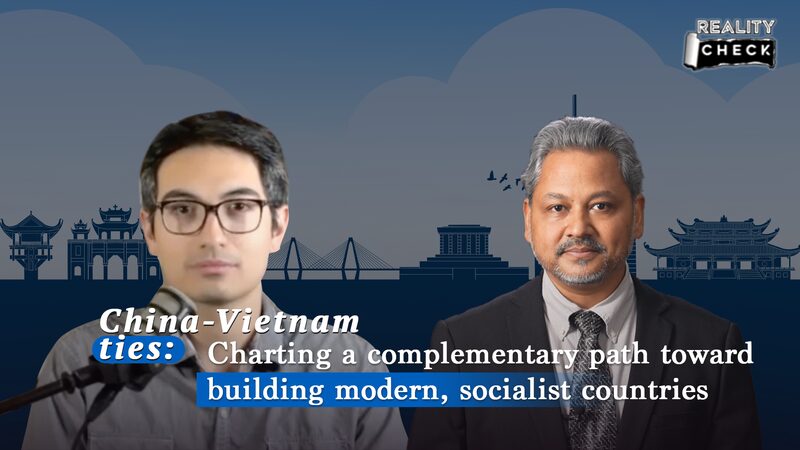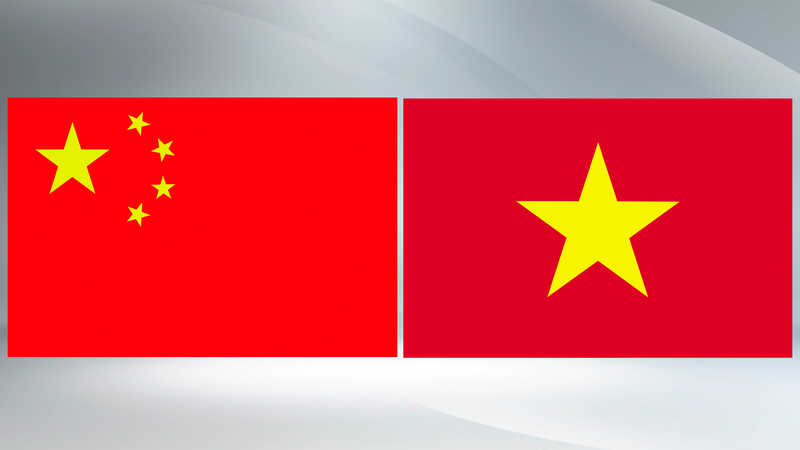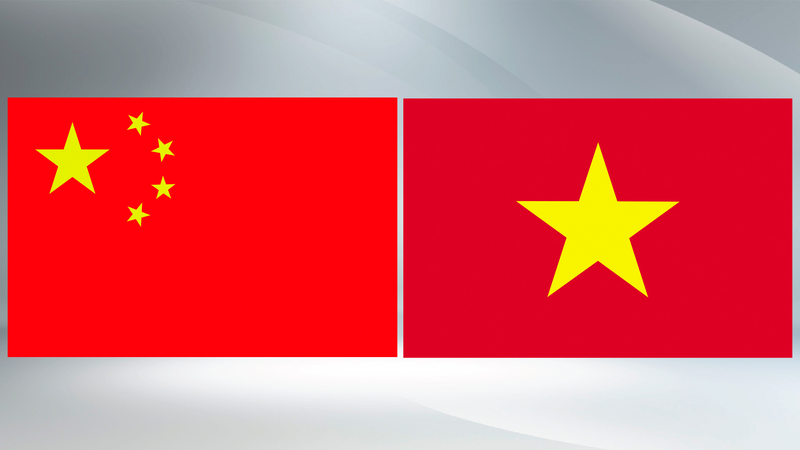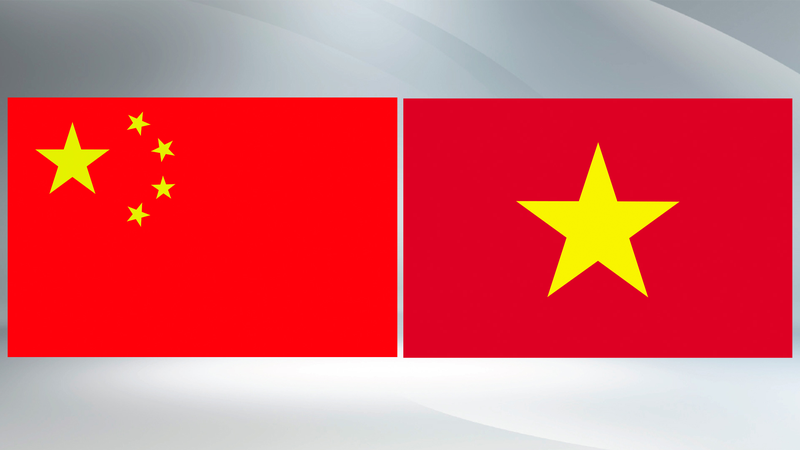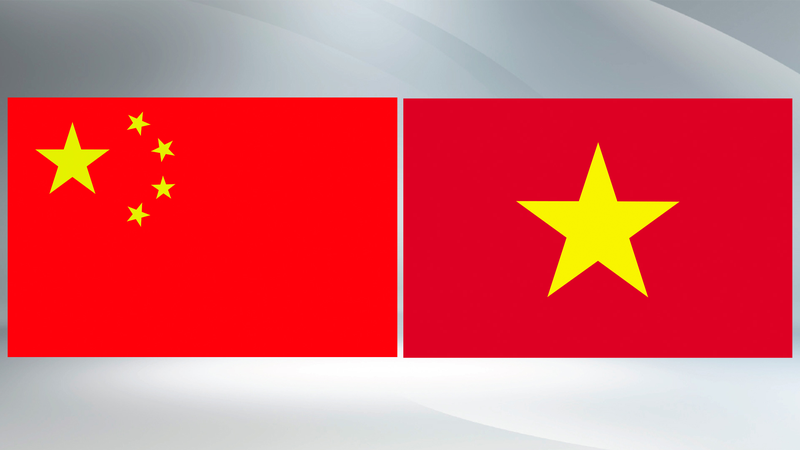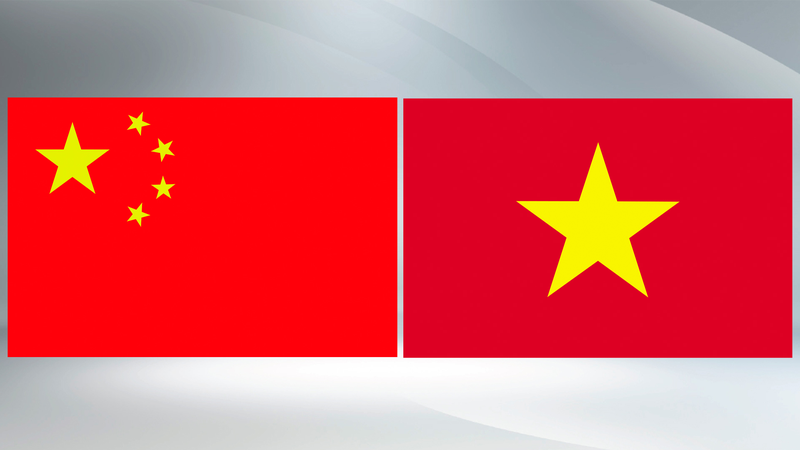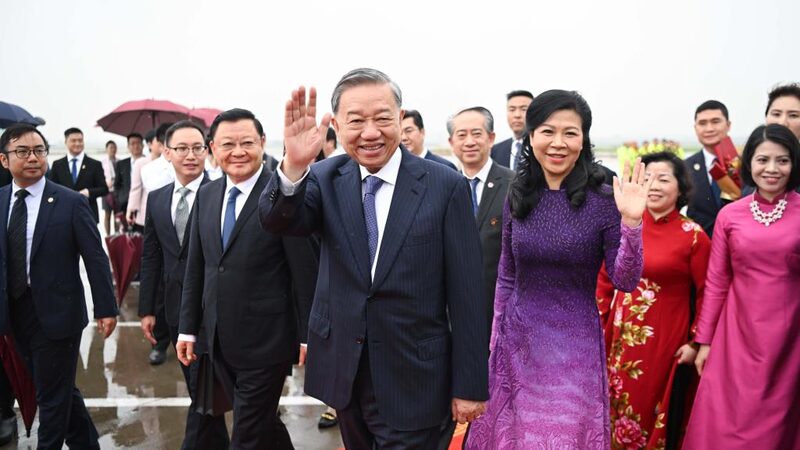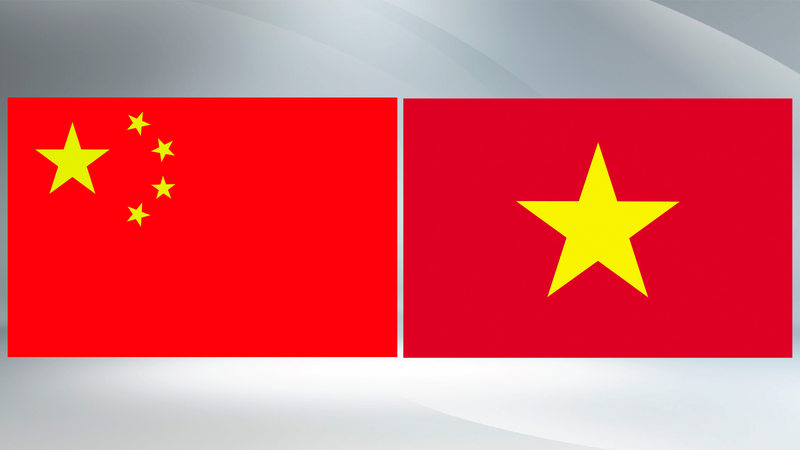A cycling race recently brought together over 600 cyclists and enthusiasts along the China-Vietnam border, with parts of the track in Hekou, China’s Yunnan Province, and others in Lao Cai, Vietnam. This event symbolizes the growing camaraderie and cooperation between the two neighboring countries.
Contrary to some portrayals in Western media suggesting hostility between China and Vietnam, the reality reflects a strengthening relationship rooted in shared interests and common goals. Chinese President Xi Jinping’s state visit to Vietnam marked a significant milestone in bilateral relations, highlighting mutual commitment to collaboration and development.
During the visit, President Xi, also the General Secretary of the Central Committee of the Communist Party of China, engaged in discussions with Nguyen Phu Trong, General Secretary of the Communist Party of Vietnam Central Committee. The leaders addressed maritime issues, agreeing to transform challenges into opportunities for cooperation. Both nations committed to enhancing border defense collaboration, continuing joint patrols in the Beibu Gulf, and deepening exchanges between their navies and coast guards.
“China and Vietnam share a unique relationship as socialist countries led by communist parties and friendly neighbors connected by mountains and rivers,” remarked Xiong Bo, Chinese Ambassador to Vietnam. “Our bilateral relations, combining these elements, are rare in the world.”
The robust economic ties between the two countries further reinforce their partnership. China stands as Vietnam’s largest trading partner, while Vietnam ranks as China’s fourth largest. From January to October this year, Chinese tourists made over 1.3 million trips to Vietnam, indicating strong people-to-people connections.
Infrastructural cooperation is another area of mutual benefit. Vietnam’s first urban light rail project, constructed by a Chinese company, has served nearly 20 million passenger trips to date. The two countries have agreed to bolster the development of trans-border railways, aiming to enhance connectivity and promote regional growth.
Assistant Professor Vu Minh Khuong from the Lee Kuan Yew School of Public Policy noted, “China has done a great job in urbanization, especially developing their public transit systems in every city. Vietnam can learn from China’s experience as we modernize our own infrastructure.”
Both nations advocate for a multipolar international order and have approached recent global conflicts with measured responses, prioritizing their national interests and regional stability. As Vietnam continues to strive for economic development, maintaining a strong relationship with China is viewed as vital.
“Vietnam is making a strategic decision to maintain the best possible relationship with China because this is vital, if not indispensable, to their sustained economic development,” said Richard Heydarian, a senior lecturer at the University of the Philippines.
The evolving China-Vietnam partnership holds significant implications for the region’s stability and growth. As both countries continue to deepen their ties, there is hope that more people will have the opportunity to experience the rich cultures and landscapes on both sides of the border.
Reference(s):
Rare and special: China and Vietnam bond by commonality and interest
cgtn.com

